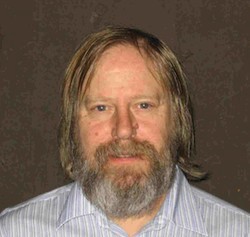As news of more sexual harassment is proliferating, it is obvious that it’s a bigger problem than we supposed it was. It’s also obvious that the issue won’t go away, and shouldn’t go away. But there’s also a rush to judgment on the part of many observers, with fingers pointed everywhere and at anybody. We all agree that the problem exists, and we’re grasping for some fair solution, but we’re not getting there.
As a way out of this, may I suggest the South African model of “Reconciliation.” As you remember, when apartheid was no longer sanctioned by that government, there arose a great cry for retribution by those who had suffered under it. Instead, the government chose to allow those who practiced apartheid to come forward, apologize for their deeds, and ask for forgiveness. Those who did so would be spared further persecution. Reconciliation was a way for offenders to put the past behind them and move forward with their lives.
We have now seen that the scope of sexual harassment has gone beyond a single party or industry. It’s in business, entertainment, religion, and politics. It involves Democrats and Republicans alike. No industry seems to be exempt. It involves people we have trusted to speak for us and guide us in our ethics. We have found that their public personae are not the same as their private ones. As more evidence of this impropriety surfaces, there are cries for these people to resign their government offices and their businesses, sometimes on the basis of anonymous testimony. And it will get worse, if we don’t address the problem with clear heads.
That’s why I think that reconciliation is the best way to go about the process of healing. If people wish to come forth and admit their deeds and seek forgiveness, we should give them an avenue to do that without forcing them to quit their jobs. We will serve notice that while we can forgive past transgressions, we will not forgive future ones. “Go and sin no more,” we will say, “but we’ll be watching you, buddy.”
Let me state that this is not a “get out of jail free” card. Unlike the South African model, there is no amnesty for those who have broken the law. These people should be punished for the crime, but only after having received due process of the law. That means an arraignment and, if necessary, a trial. (The problem comes when the statute of limitations has expired on certain incidents; in this case, while we are powerless to punish the crime, we are not powerless to decry it and insist that its perpetrators apologize for it. The crime doesn’t go away, even if the ability to prosecute it does.)
In going through the process of reconciliation, the South African people have been spared many of the repercussions that would have ensued had people cried for vengeance, and the process of healing is continuing to influence their history. We can follow that course, too. I think that many of the accused, notably Senator Franken, have already taken steps to begin this process through their own public apologies and pledges to behave differently in the future. This is an initiative we should support.
When it was apparent the Civil War would be lost by the Confederate States of America, Abraham Lincoln foresaw that there would have to be a period for healing. He allowed the defeated soldiers to keep their arms, and called for “malice toward none, and charity for all.” Sadly, he was assassinated before he could put most of that plan through, and the result was a period of punitive “Reconstruction” that only fanned the flames of hatred and intransigence. We have been feeling the pain of that disaster ever since. But if we take his words to heart, if we can forgive and use the opportunity to re-shape our values in a way that heals and affirms our dignity, then perhaps we can avoid much of the acrimony we’re likely to see.
We can do this. Americans are a forgiving people. We believe that given the opportunity, most people with clouded pasts will put those pasts behind them and seek a better future for themselves whenever they can. If we can find a way to forgive our own friends and relatives, we should be able to forgive those of our greater community. They don’t have to take the opportunity to be forgiven, of course, and many of them won’t, either from pride or a simple disregard for ethics. Those people should suffer the consequences of that lack of contrition … removal from office, social exile, and all the disrespect we can heap on them. But let them make that choice for themselves, and let those who choose to ask for forgiveness be forgiven.
I realize that there’s an argument for removing people from positions of power if they admit wrong-doing, but here’s the thing: if we put pressure only on those who admit wrongdoing (like Al Franken), we’ll end up protecting those who do it but don’t admit it (like Donald Trump). If we take this to a logical conclusion, the people ending up with the power will be the scumbags. I don’t see this as a way of resolving the problem.
(I’m posting this at the request of James Israel, our publisher. It previously appeared on my blog.)
- Now It’s the Women’s Turn - January 23, 2018
- Blessed Are the Merciful - December 11, 2017
- Navigating the News Stream - September 20, 2017


